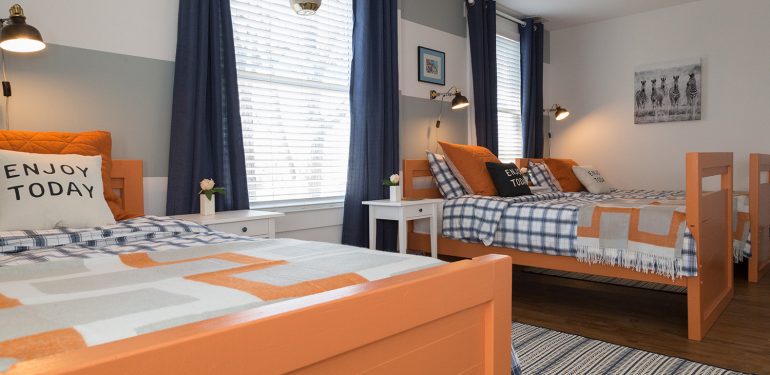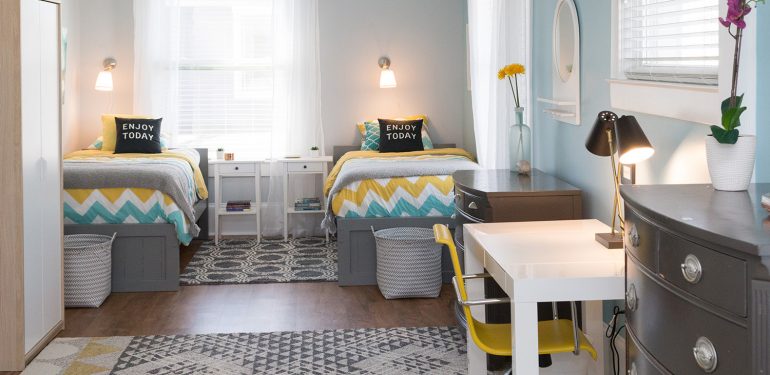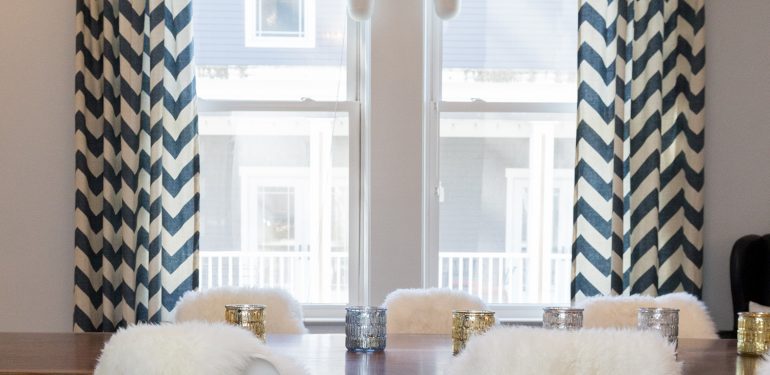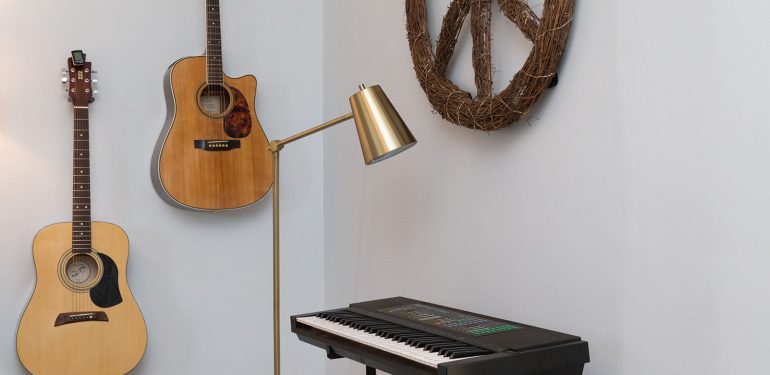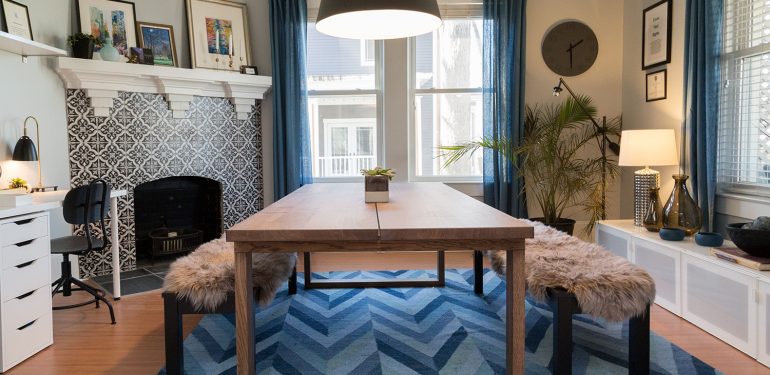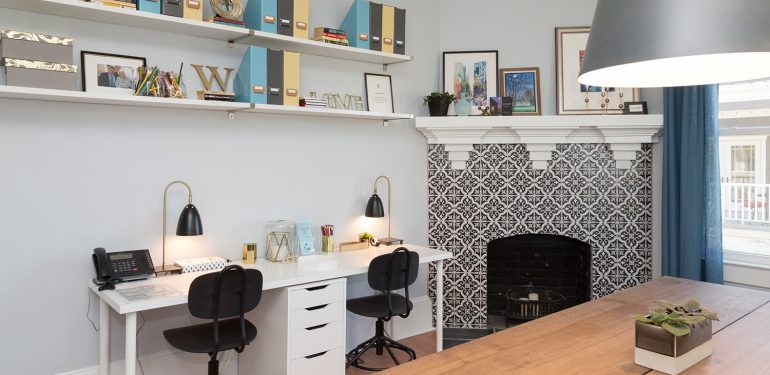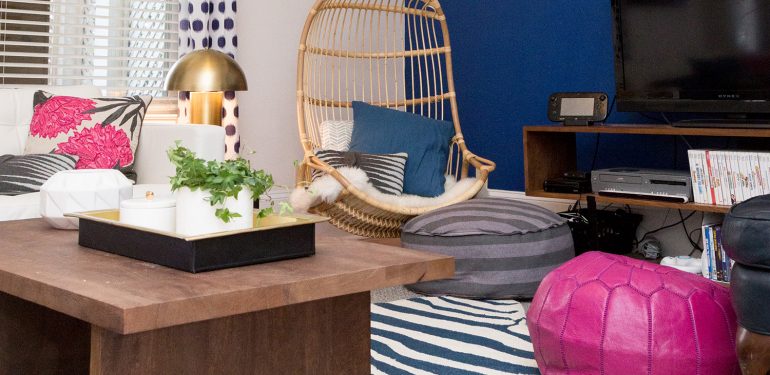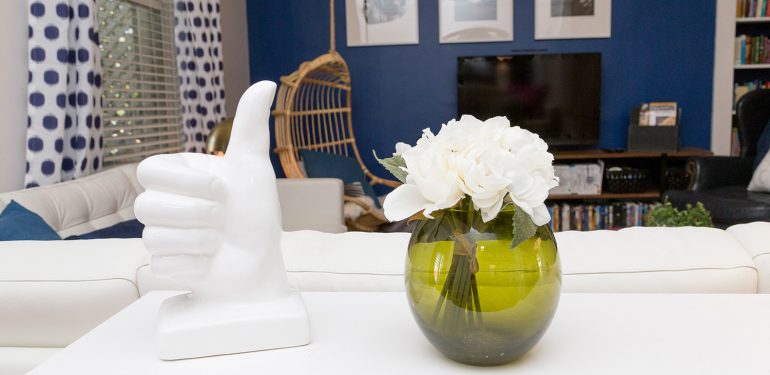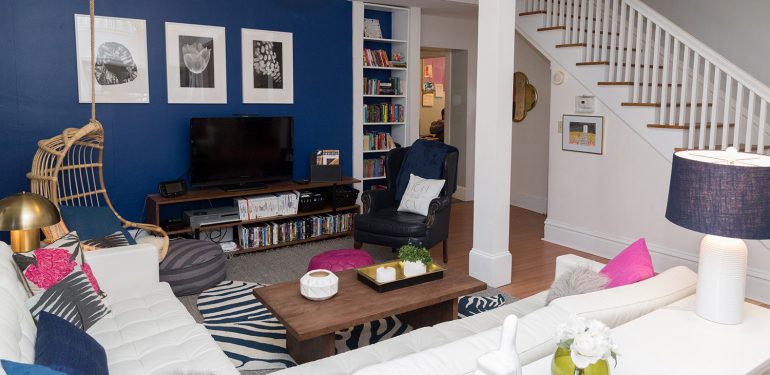Lotta Sjoelin
Bringing beauty and dignity to kids in crisis
by Liza Roberts
photographs by Missy McLamb
When a child arrives at Wrenn House, the Triangle’s only homeless, runaway, and crisis intervention shelter for kids ages 10 – 17, it could be any hour of any day. But no matter when a young person arrives, he or she is welcomed into a place not only of help and safety, but also one of calm and dignity, with clean and beautiful furnishings, a freshly made bed, and a sense of order.
For 30 years, Wrenn House, a program of Haven House Services, has been serving local youth in need of safety, counseling, and temporary shelter nonstop, 24 hours a day, 365 days a year. But it wasn’t until this year that the home looked and felt as good as the work that it does.
“It has been an amazing transformation,” says Lotta Sjoelin, founder of the nonprofit A Lotta Love, which recently refurbished and redecorated the house from top to bottom with a fleet of volunteers, a $30,000 grant from the Women’s Giving Network of Wake County, and thousands of dollars of donated goods and services. Painters, floor installers, electricians, and tilers all chipped in: “When they see what the work is for, they say ‘I’m not going to send you a bill,’” says Sjoelin, who is an interior decorator by trade. The contractors, like her volunteers, were inspired by Wrenn House’s mission and a sobering understanding of its need. “There are very few places like this,” she says. And none, it’s safe to say, that look like it.
Wrenn House serves eight kids at a time who stay anywhere from one night to three weeks; the typical stay is about a week long. Kids come because they are homeless, because their family is in crisis, because they are unsafe, because they’ve run away. Parents living in their cars sometimes drop kids off at Wrenn House at night so that they can sleep in a bed. “There are 2,700 homeless kids in Wake County,” Sjoelin says.
“The poverty in Wake County is incredible. One in four kids go to school hungry. It’s heartbreaking. And it’s not getting better, it’s getting worse.”
Kids at Wrenn House are provided with counseling, case management, referrals, and an education in life skills. Social services workers facilitate their return to relatives, friends, or someone they trust. Thanks to Sjoelin, these kids are able to weather the storm in physical surroundings that also address their psychological and emotional needs.
Creating a home
Sjoelin transformed Wrenn House with a combination of scrappy ingenuity, professional know-how, penny-pinching, and an occasional splurge. The dining room table, for instance, is a one-of-a-kind creation made from a single slab by a woodworker in the mountains (“I got a very good price for it”); original oil paintings donated by the Durham Arts Council bring serenity to several rooms.
“That painting was commissioned,” Sjoelin says of the geometric canvas on the living room wall. “I wanted color. I wanted this to be an energetic room.” She chose furniture in practical materials that wear well like leather and wicker; many rugs are sturdy indoor/outdoor types. At every turn, she tried to make Wrenn House feel like a home, not an institution, even putting picture frames on the requisite documents on the walls – fire routes, house rules – and turning them into graphic works of art.
When she finished transforming the dining room, her first room at the house, the kids in residence walked in and their jaws dropped. “They said: ‘This is for us?’” Sjoelin recalls. “They didn’t understand. We told them yes, it is for them. They deserve it.”
Much of the elbow grease that went into the clean-out, clean-up, painting and installing was done by groups of 20, or more volunteers Sjoelin gathered for what she calls “D-Day” blasts. “It’s so much fun,” she says.
She knows how to plan and execute a project like this because she’s done it before. She started in late 2014, when a friend told her that the HomeStart shelter for homeless women and children in Chapel Hill could use some pillows. When Sjoelin arrived with her arms full, she was dismayed to find the shelter spare, depressing, “bleak.” She immediately decided to gather resources, volunteers, and furnishings to transform it room by room.
Former HomeStart resident Mimi Lubin says she was amazed when she saw what Sjoelin had done. “I thought, who would come and decorate my room?” The impact, she says, was huge: “It made me feel like life was going to get better. It really gave me energy. It brought me to life.”
A mission and a nonprofit – A Lotta Love – was born. Sjoelin has since transformed environments in five other Triangle shelters, including Wrenn House, and spawned two A Lotta Love chapters. “I’ve found my passion,” Sjoelin says. “I’m so fortunate.”
Powerful advocate
Sjoelin’s enthusiasm, expertise, and concern for the people whose living environments she transforms make her a powerful advocate. “I got $3,000 worth of Pottery Barn Teen things today,” she says, “Bedding, accessories, backpacks … I ask everywhere. You can only get ‘no.’”
She also asks everyone, especially kids, to get involved. Sjoelin requests that donors consider raising enough money to donate a room (about $700); she then designs rooms for maximum style, efficiency, and durability. Finally, she asks volunteers to pitch in to paint, hang curtains, and move furniture. She’s got teams of students who help her. Students at Durham Academy, for instance, have founded an A Lotta Love club that raises money with bake sales to refurbish rooms at Durham shelters. And the Alpha Chi Omega sorority at UNC-Chapel Hill has raised as much as $10,000 for HomeStart renovations and put on Christmas parties for its residents.
“My goal is not to raise as much money as possible, but to raise awareness,” Sjoelin says. Awareness of the problems that contribute to homelessness, especially in young people, will bring change, she believes. “If we can expose them, they can change it.” So lately, when people ask how they can get involved, she urges them to follow her lead: “Just start with a room,” she says. “If I can do it, anyone can do it … My goal is to see this in Greensboro and Charlotte.”

